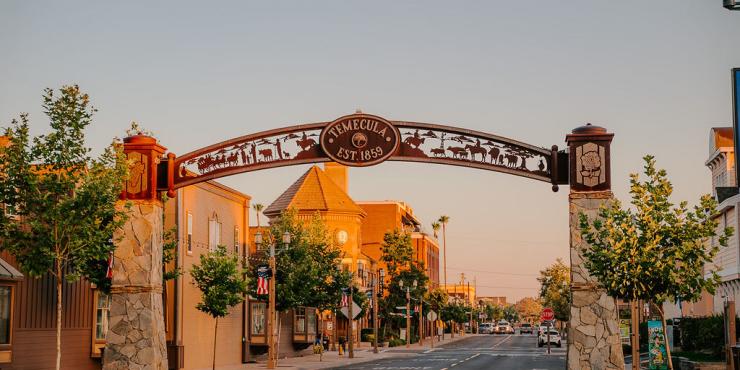
When Mark Beales noticed that his favorite coffee shop in Kona, Hawaii, had closed early, he didn’t have to look far for the reason. The “Help Wanted” sign out front told him everything he needed to know. He saw the same signs at grocery stores, hotels and gift shops around the Big Island.
“A few employees I’ve spoken with said they’ve had to work long hours because of the staffing shortage,” says Beales, a retired mortgage banker from Mill Creek, Wash.
Beales’s problem could become your problem this summer. The hospitality industry is facing a historic staffing shortage. After aggressively downsizing during the pandemic, many companies are scrambling to hire new employees to meet demand. The sluggish staffing recovery could result in major service disruptions.
“Even before the pandemic, hospitality organizations struggled with attracting and retaining a qualified workforce,” explains Michael Sheridan, an associate professor of tourism and hospitality management at Temple University. “Covid-19 has only exacerbated this challenge.”
Sheridan says many industry professionals decided to leave the travel industry after losing their jobs. Students who would normally major in hospitality and tourism have reconsidered their career choices. “It’s having a drastic effect on the hospitality labor force,” he says.
How bad is the “help wanted” problem? Narendra Khatri, CEO of travel insurance company Insubuy, says the industry “hasn’t faced this severe shortage of job applicants in the past two decades.”
The Refuge Brewery in California’s Temecula Valley had to cut its hours because it could not find enough staff to stay open. Owner Curt Kucera says he would get hundreds of applications for an open position in a typical year; now, he’s lucky if he receives more than 10.
“Other restaurants have started to offer signing bonuses and retention bonuses,” he says. “We haven’t taken that step yet but are certainly considering it if the challenges continue into the summer.”
In Solvang, Calif., just up the coast, the picture is similar. Aaron Petersen, co-owner of several restaurants in the area, says he has had to close on Mondays and Tuesdays because of a staff shortage. Many of his workers said they would stay if he agreed to pay them in cash. Others have retained part-time status so they can collect unemployment. “Most restaurants are begging for help,” he says.
It’s not just restaurants. In the nearby Buellton, Calif., the tavern and inn at Zaca Creek are paralyzed by a staff shortage. Stephen Villa, Zaca Creek’s general manager, says the new venture had to put an expansion on hold because it didn’t have enough people.
“We simply do not have the necessary staff members to sustain a consistent level of service,” he says. “While we’re grateful for the applicants we do have, numbers are sparse and mostly without any meaningful service experience, and it continues to be a struggle to find anyone nearing the right fit that has the availability for the times we need.”
The King and Prince Beach & Golf Resort in St. Simons Island, Ga., normally hires some of its housekeepers from abroad, but last year the pandemic forced it to recruit staff locally. Bud St. Pierre, the hotel’s director of sales and marketing, says that has forced the management team to get creative, often coaxing housekeepers with jobs in other hotels to accept part-time work at his property. “It will allow us to stay fully open and staffed this summer,” he says.
Help is needed everywhere, according to experts. Tracey Jenkins, senior vice president for human resources at Sodexo Sports & Leisure, which handles ticketing, food service and logistics for large sporting events, said the labor shortage is a nationwide issue. During the pandemic, it set up a program to retain its employees by shifting them to other divisions. “We are also extending benefits as much as possible,” she says.
But smaller companies didn’t have that luxury, and now they are paying the price. “With fewer workers, the quality of service in hospitality is likely to be affected in the coming months,” says Roland Rust, a business professor at the University of Maryland. “And there’s not much that travelers can do about it.”
Or is there?
“Planning is crucial,” says Brian Marks, executive director of the University of New Haven’s entrepreneurship and innovation program. “It will be important to perform your due diligence to ensure that your destination is properly staffed.”
If planning doesn’t come easy to you, consider finding a travel professional who can call ahead to make sure your favorite attractions and restaurants are open. If you do it yourself, keep one thing in mind: Days of operation and opening hours will be volatile and subject to change.
Patrick Hansen, who owns several chain hotels in Virginia, North Carolina and Georgia, says hotels face difficult choices in dealing with staffing shortages. They can either clean the rooms halfway and keep them all open or close some of them until they have the staff to service them. He has decided to block off between 15 and 20 percent of his hotel’s rooms until he can find employees to service them.
“I would rather leave the rooms uncleaned and not sell them than have them cleaned poorly,” says Hansen, director of operations at Dominion Hospitality Group.
If you are thinking of eating in a restaurant, get a reservation. If the place doesn’t take reservations, then avoid peak times. Even then, prepare for what may be a long wait, says Kay Maghan, a spokeswoman for Alabama’s Gulf Shores and Orange Beach region.
In her area, even the fast-food restaurants can’t handle the influx of demand.
“They’re closing their dining rooms and only operate the drive-through because they can’t get enough workers to fully staff the restaurant,” she says.
This isn’t going to be an easy summer for the tourism industry. After a year of lockdowns, it finally has a shot at recovering some lost business, only to find that it doesn’t have the staff to handle the demand.
“Be patient,” says Elizabeth Squillante, a travel adviser with New Canaan TravelWorld. “There’s no industry that wants to see people on the move more than the travel industry. It will just take some time to get things back to where they used to be.”












